Athletics is the leading ‘non-elite’ sport raking in millions of shillings for successful Kenyan runners. The dominance of the global distance athletics scene by Kenyans needs no gainsaying.
The question being asked, therefore, is how do the athletes invest their millions?
A world championships gold medal is worth $ 60,000 (Sh 4.5m). So even very ordinary athletes have become instant millionaires.
A world title and world record open other lucrative avenues as they qualify for appearance fees in big races, usually in the region of $50,000 (Sh 4m). That is the amount in their pockets before starting a race in a major Grand Prix, Golden League races or big city marathons.
Paul Tergat is one of Kenya’s world record holders today – he holds marathon’s world best time 2:04:55. Daniel Komen still holds the 3000m indoor and outdoor world records which he did in 1996.
World marathon champion Catherine Ndereba ran world marathon best time in 2001 in Chicago and won twice in Chicago and Boston. She has five wins in 10 marathon races.
Joyce Chepchumba has won six times in 17 marathons, including London in 1997 and 1999, when she won the biggest ever prize of $230,000 (Sh 17m) in a marathon race.
Many more Kenyans belong to the big league of moneyed athletes.
Yet they are for ever self-effacing, nay introverts, wearing facial expressions that totally belie their financial stature.
Moses Kiptanui, who won three world 3,000m steeplechase, is said to be the richest of them. Some accounts have it that Tergat is now the guy on top of Kenyan millionaire athletes.
Athletes, even the most exposed ones, are very secretive people. They hate being drawn in their investments but an account of what they own revealed that Kiptanui is now building a Sh 20 million three-storey estate on Kenyatta Avenue, near the Barclays Bank of Kenya offices.
“I have been involved in running and coaching all these years. I have now taken two years off to invest and that is what I am doing,” he told this writer recently.
Besides the real estate property coming up in Eldoret’s Central Business District, he has a large farm in Marakwet where he rears cows and goats.
Many athletes have won races out there, earned their millions of shillings which they quietly bring into the country to invest in real estate and large scale farms.
Bungalows some of them have built would many a blue chip company executive envious
Tergat co-owned an import-export Borborei Freighters and a publishing company The Athlete with Moses Tanui until recently when he went solo.
He has two modern residential estates in Ngong area of Nairobi and an ultra-modern expansive countryside residence in (ex-president Daniel Moi’s neighbourhood) Kabarak, whose construction is rumoured to have cost Sh 1m.
Until four months ago, he owned the franchise for Engen Oil Company’s station in Parklands.
Moses Tanui, the 1991 world 10,000m champion and twice winner at Boston City Marathon (1996, 1998), has a massive bungalow in the up-market Kapsoiya neighbourhood in Eldoret, an architectural masterpiece estimated at Sh 15m.
Tanui owns a modern multi-purpose gymnasium on Oloo street, which is a hub of activity for the financially-endowed group.
He owns another house at Elgon View, which he lived in before moving to the Kapsoiya place.
Kapsoiya is very near to Eldoret State Lodge. This probably explains the value of land in this privileged neighbourhood.
His next door neighbour is (Daniel) Komen, who has also built an imposing single storey villa with a high perimeter fence.
Another neighbour is (Moses) Kiptanui whose equally elegant house is in the range of Sh10m.
An audit of property in the Eldoret Central Business District owned athletes reveals a remarkable departure from the past where athletes only had their medals to show for the years of jet setting and scaling heights of sporting success.
Kip Sports House along Oginga Odinga street is one of the oldest sports goods shop in town. It is one of Kip Keino’s pioneer investments.
Former world record holder over 10K, Sammy Kipketer’s four-storey office block on Moiben Road is nearing completion.
Ibrahim Hussein, who was the first Kenyan to win big city marathon races – Boston City, New York City and Honolulu, owns a three-storey office block along Moi street.
Yobes Ondieki, the first man to run a sub:27 minute over 10,000m, whose world title he won in 1991, co-owns a gymnasium in Kogo Plaza along Uganda road with a Swiss journalist Jurg Wirz.
Patrick Sang, who won 3,000m steeplechase silver medal in 1992 Barcelona Olympics, has a house in Elgon View. Many others have invested in Ken Mosa, formerly Eatec Headquarters.
Outside Eldoret, Lornah Kiplagat’s High Altitude Training Centre in Iten stands out with its modern training facilities. It cost approximately Sh 20m.
Other training centres outside Eldoret are in Flax, Kaptagat, Kapsabet and Kapsait in the highlands of Marakwet.
Young athletes are inspired to attain higher levels of running when they see residential houses owned by their role models.
Former Boston City marathon winner Elijah Lagat bought a beautiful residential house in Kapsabet, which was built by (Yobes) Ondieki.
A big contrast with pioneer athletes, who only run for their countries for the sake of winning medals, and are now wallowing in abject poverty in the countryside.
Only exceptions are legendary Kipchoge Keino, Robert Ouko, Dr Mike Boit, Julius Sang and his wife Tegla Chemabwai.
Keino, who is National Olympic Committee of Kenya (NOC-K) chairman, and a member of the International Olympic Committee (IOC), is a prominent farmer and businessman in Eldoret its environs.
Ouko runs an athletics management company while Chemabwai is head of Physical Education Department at Moi University’s Chepkoilel campus. Dr Boit is a lecturer at the Kenyatta University. Sang retired from the civil service recently in a very senior position – he was the Provincial Prisons Officer.
Others are not very good role models for the young runners.
source: Eastandard

















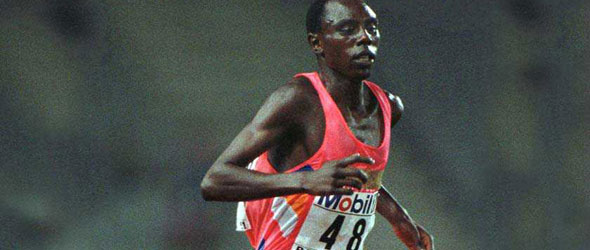
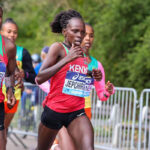
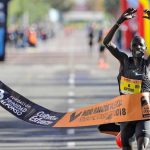
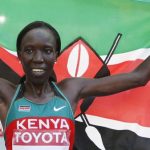
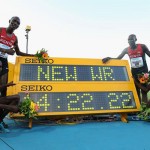


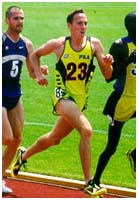



Speak Your Mind